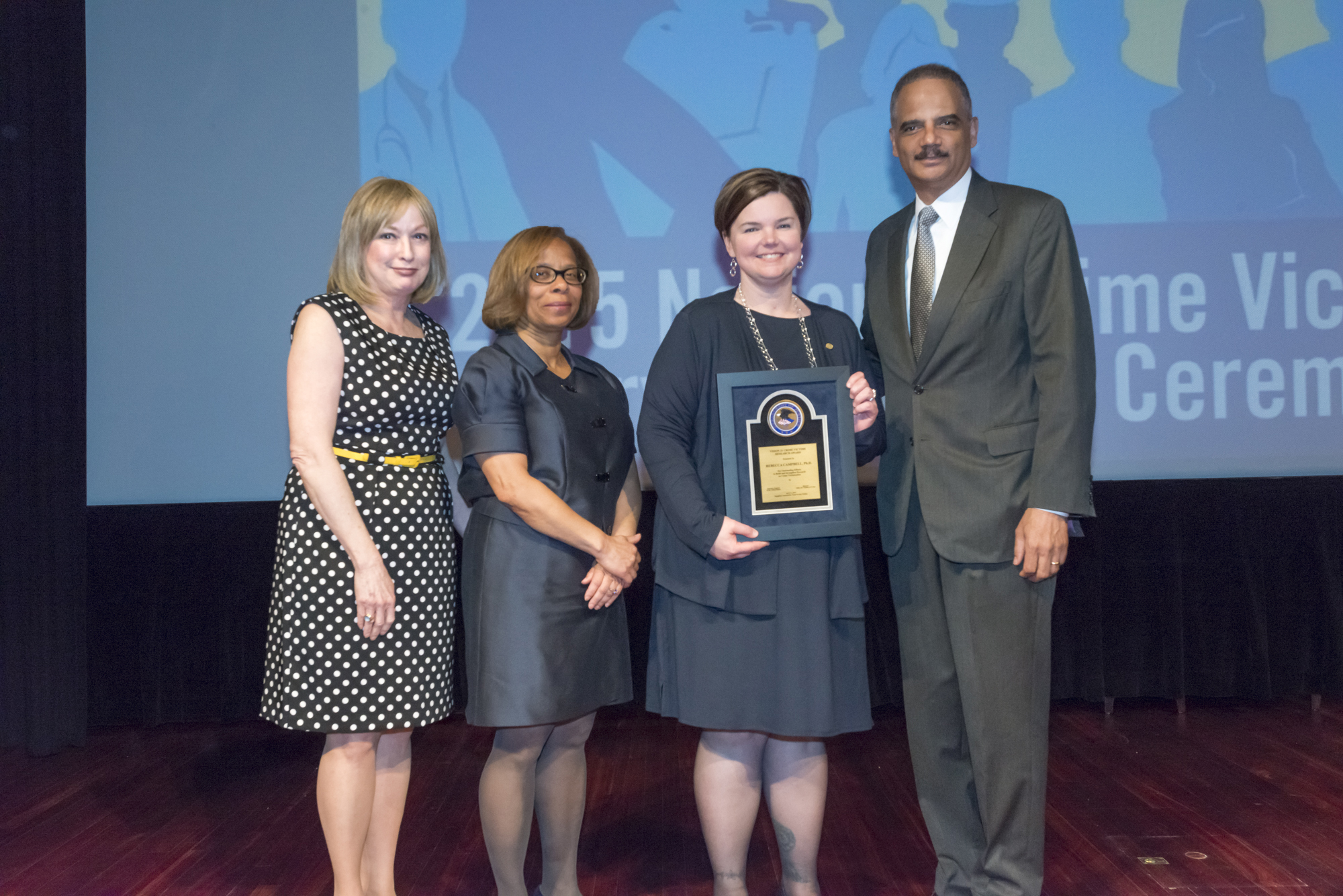Archival Notice
This is an archive page that is no longer being updated. It may contain outdated information and links may no longer function as originally intended.
Rebecca Campbell | Crime Victims Research Award
Michigan State University
East Lansing, Michigan
Rebecca Campbell, is a professor of Community Psychology and Program Evaluation at Michigan State University. She is one of the first researchers to focus on violence against women, particularly sexual assault.
For the past 25 years, Dr. Campbell has conducted research on violence against women and children, with an emphasis on sexual assault, coordinated community responses, untested rape kits and the neurobiology of trauma. Her research focuses on gathering data that helps the field create the most effective, competent and appropriate response to victims that minimizes trauma and re-victimization.
Dr. Campbell’s body of research includes numerous evaluations of Sexual Assault Nurse Examiner programs and Sexual Assault Response Teams and their impact on criminal justice system outcomes. Importantly, her research sparked interest of other programs to gather similar data. In response, she developed a step-by-step toolkit that practitioners could use to gather such data. Dr. Campbell’s work on the neurobiology of trauma and how trauma impacts a survivor’s ability to participate in the criminal justice process has transformed the way that law enforcement responds to victims in several communities, including Cleveland, Ohio; Houston, Texas; and Salt Lake City, Utah. Dr. Campbell’s approach to research is in line with the Vision 21 goal to “build a body of evidence-based knowledge…on victimization.”
She has spent much of her professional life doing community-based, participatory research. She emphasizes forming partnerships between stakeholders and sharing a common vision. Her current project, in which she works as an evaluator for the National Institute of Justice “action research” program on untested rape kits in Wayne County, Michigan, is a strong example of a researcher–practitioner partnership. The outcome of this is to ensure that her research is informed, understood, and utilized by practitioners.
Dr. Campbell’s work has significantly improved the Nation’s understanding of sexual assault and has promoted a victim-sensitive response. Her work paves the way for other research efforts on victim issues by closely collaborating with practitioners and then translating and disseminating her results in a way that can be used by practitioners and policy makers. Her work has changed the medical and criminal justice response to sexual assault.
2015 National Crime Victims' Service Awards Tribute Video
Watch this video to learn more about Rebecca Campbell, Ph.D., 2015 recipient of the Crime Victims Research Award.
Rebecca Campbell, Ph.D. receives the 2015 Vision 21 Crime Victim Research Award with (from left) Joye E. Frost, Director, Office for Victims of Crime; Karol V. Mason, Assistant Attorney General, and Attorney General Eric H. Holder, Jr.
The 2015 National Crime Victims' Service Awards recipients with Attorney General Eric H. Holder, Jr., Assistant Attorney General Karol V. Mason, and OVC Director Joye E. Frost.





